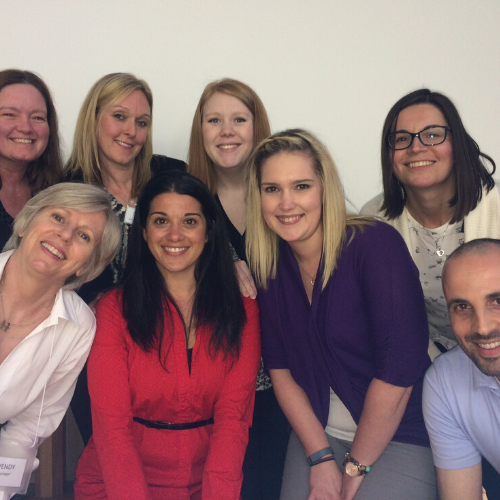Program Profile: DANO (Day Treatment for Adolescents and New Opportunities) and Mountaineer
By Wendy Caron, Program Manager
When I began writing this profile, I started out just talking about DANO, but quickly found that DANO and Mountaineer are so linked that I couldn’t speak of one without the other. Without DANO, there would be no Mountaineer, and vice versa. They are sister programs, and the teams work that way.
Originally published May 2017
History
The program was founded in 2009. The team at the Burlington Junior Day Treatment Program noted a considerable number of their clients presenting with symptoms of anxiety and depression. In response to this need, the Junior Day Treatment program transitioned to an anxiety based program for students in grades 7 and 8. At this same time, Transitions for Youth was unable to continue funding the Mountaineer program, so Woodview took the opportunity to enter into a partnership with the Halton Children’s Aid Society to provide staffing so the Mountaineer program could continue. It didn’t take long to see that the number and acuity of students in secondary school was overwhelming, and so DANO (Day Treatment for Adolescents and New Opportunities) changed once again to meet the community need.
Who We Serve
We now have DANO and Mountaineer offering programming to secondary students presenting with depression, anxiety, non-suicidal self-injury, and suicidal ideation. We have 8 students in each program.
DANO & Mountaineer Staff
Each Day Treatment program has a teacher, two Child and Youth Counsellors CYCs, and a Social Worker shared between them.
Day-In-The-Life
- Check-in, chit chat, and share articles of interest in the newspaper (this teaches conversation skills, voicing your opinion, initiates peer support, and develops self-reflection and insight). Okay, it’s fun too.
- Two academic periods and two therapeutic periods for the duration of the day.
- The program is semestered.
- Semester One/Phase One: Students attend every day, all day.
- Phase Two: Students attend the program in the mornings, their community schools in the afternoon for two academic periods.
- Phase Three: We offer monthly follow up, as a group and/or individually or as a family.
- We have Phase One and Phase Two students mixed in the program at one time.
- The therapeutic programming consists of DBT (Dialectical Behavioural Therapy) skills and comprehensive DBT, CBT (Cognitive Behavioural Therapy) including exposure therapy, Social 15 Skills and Healthy Living (cooking, nutrition, relaxation and physical activity), Pet therapy, ADAPT program, and individual support when transitioning to community schools.
- A Parent Group is offered in the evening on a weekly basis, for 8 weeks each Phase. This is a DBT skills and process group.
- Family therapy occurs with each family every two weeks.
Stand Out Memory
The Open House and the Graduation ceremonies are some of the most emotionally moving times for the staff and clients. To hear from potential clients at the Open House that they are hopeful for their future, because they just heard a same-aged student share his/her story. To hear parents say thank you to the staff, for helping them “get their kid back”. And at graduation to see the kids cry with pride, and hug the staff goodbye…the same staff they hated a short 10 months ago. Like all of us, with our individual programs…these are the times we work for.
Referral Process
While the majority of referrals continue to come from the School Boards, we also get family initiated referrals, as well as referrals from local psychiatrists, physicians, and the treatment programs (CAPIS and REACH) at Halton Health Care. We host an Open House each semester, which allows interested and reluctant referrals an opportunity to meet the staff, watch our short video about the program, and hear from students and parents who have participated in the program.
Quirky Fact
Once a month, the two programs get together where they do a shared activity such as apple picking, Christmas crafts, hiking, bowling, or go to a restaurant all together for breakfast. This gives all students opportunities to use their DBT skills as they are placed in uncomfortable social situations.

